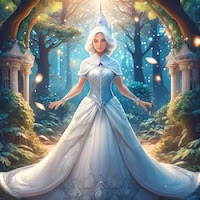But is it feasible to write short stories and make money doing it?
If you know what you're doing, you can earn money from all of your writing. Over the years, my methods of making a living as a writer have evolved significantly, but one consistent source of income has been writing short stories.
Markets for Short Stories
To start making money quickly from your short stories, look for paying markets. Strive for well-paying markets that pay at least 5 cents a word. And never, ever pay to submit your work. You’re a professional writer and your time is worth money so you should be paid for your work. Whoever you send your work to will earn money from it, more than they’re paying you (that’s how business works) so make sure you’re paid well for what you do and never pay to submit.
Types of Short Stories
Pick a genre that you’re comfortable writing in. No one can choose a genre for you because only you know the kinds of stories you like to write.
And you don’t have to choose just one genre. I’ve written horror stories as well as romance stories. These are two completely different genres but I enjoy writing (and reading) both.
Short stories can also differ greatly in length. Some markets want stories up to 10,000 words, which is great if they’re a high-paying market of 8 cents a word. Others want Flash Fiction of only 250 words, or Drabbles which are stories of exactly 100 words, which is only a couple of short paragraphs.
Shorter story markets such as these can still be high-paying with up to $100 for just a few words.
A word of warning though; make sure that your copyright remains with you and that your story is yours to republish after a few weeks or a year. These things will be in the the Ts & Cs of the publication you’re submitting to.
If you story gets rejected (and most will, it happens to us all), just keep sending it to other markets, even if you have to tweak it a bit to suit their guidelines.
Having your stories published in anthologies is great for marketing because those books will probably go on selling for years so it helps to get your name known.
How Many Stories to Write
If you’re serious about earning money, I’d suggest you write and submit one story a week, or one a fortnight if that’s too much. This helps writing and submitting to become a habit.
As well as submitting to markets that pay outright, there are also a few story websites (like Wattpad for instance) where you can upload your work and receive payments based on how many people read your story. I don’t have any experience submitting stories this way so I don’t know if it’s worthwhile or not, but many writers swear by it.
But you can keep submitting your stories to high-paying markets. Keep them on the market for at least a year. If they still don’t sell, or even if they do, you can publish them in your own short story collection and they can go on earning you money for years, which will increase year after year as you keep writing more short stories.
So keep writing and have a blast doing it.
https://www.cheritonhousepublishing.com/books/MCWS1.html





